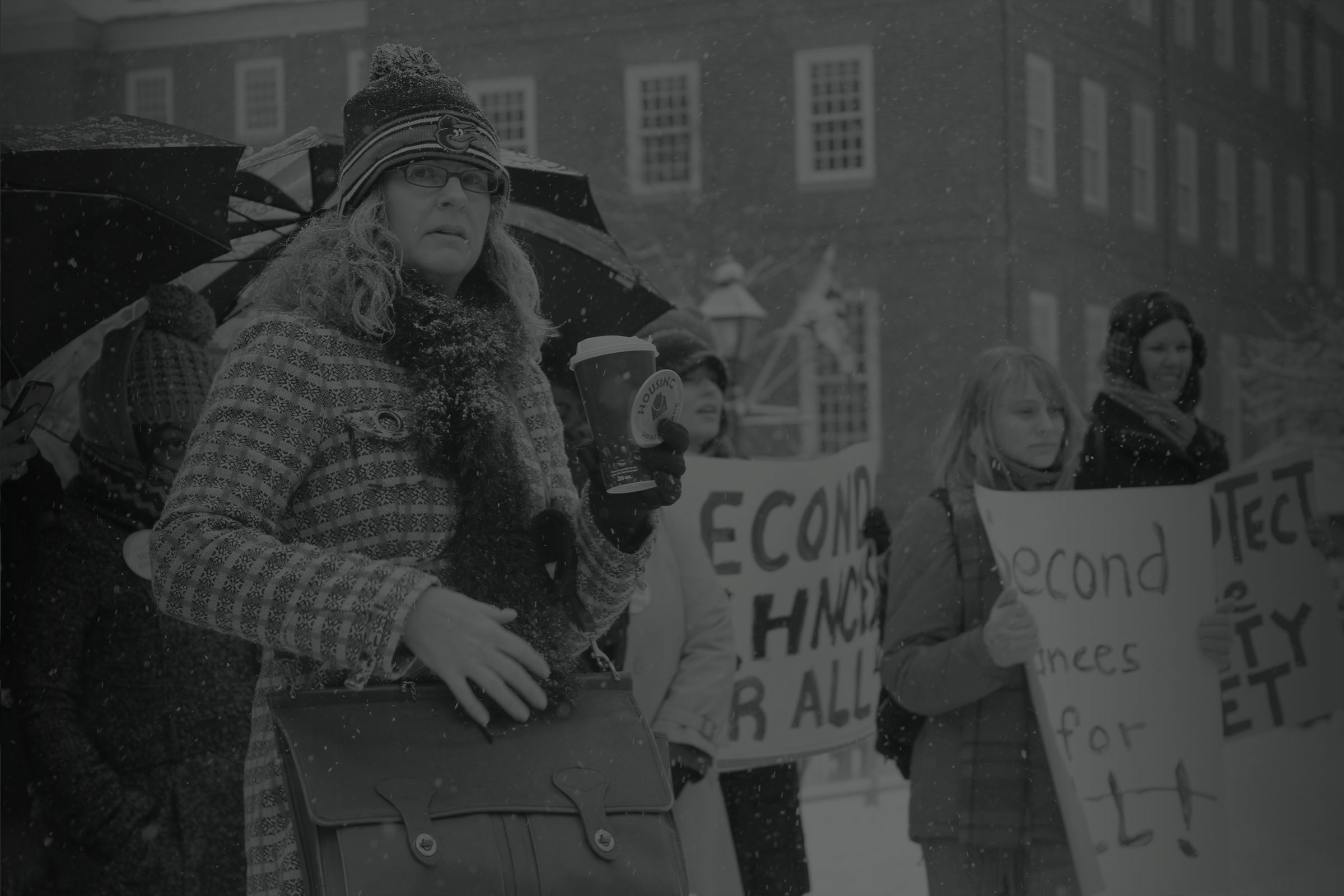Services alone cannot end homelessness.
Health care and supportive services are essential to minimizing the suffering of our neighbors without homes. We need visionary—even revolutionary—change to make that happen.
So advocacy is core to the Health Care for the Homeless mission. Our advocates span staff, clients, partners, donors and volunteers, with the most powerful voice being that of those who know homelessness first-hand.
What our advocacy looks like
Advocacy at Health Care for the Homeless is shaped by the perspectives and involvement of our staff, Board of Directors, clients and volunteers. We advocate on local, state and national levels. And we focus our advocacy efforts on the underlying causes of poverty and on challenging public policies that uphold the status quo.
Our advocacy work is grounded in a multi-year advocacy agenda. We advance this agenda by partnering with a range of local and national organizations to push for universal access to comprehensive health care, affordable housing and livable incomes.
This advocacy takes many forms
A well-trod path to Annapolis
We close the clinic for one full day each February so that all staff, accompanied by clients and volunteers, can board buses for Annapolis and spend the day meeting with lawmakers to discuss issues of homelessness and health. Staff members and clients also make the southward trek throughout the legislative session to testify on bills that advance our advocacy priorities.
Ongoing education
Staff members email and call legislators throughout the legislative session to urge them to support bills that align to our advocacy priorities. And throughout the year, they seize every possible opportunity to educate and inform lawmakers, elected officials, community and business leaders and the general public about the realities of poverty and homelessness in our city and state.
A direct line to Washington
Three National Health Care for the Homeless Council staff members work out of the Health Care for the Homeless headquarters at 421 Fallsway, providing important national and policy perspectives on our local work and infusing national policy recommendations with an on-the-ground perspective.
A seat at many tables
Staff members and clients sit on many boards and committees across the city that focus on issues related to poverty and homelessness and, more broadly, social justice. They add value to collective, cross-agency efforts and bring back community updates that inform our work.
Our advocacy work is supported exclusively with private funds.

Client advocates
Who better to advocate for the public policies and social, economic and political changes needed to end homelessness than those who have lived it?
Ultimately, the most valuable element of our advocacy at Health Care for the Homeless is the authenticity and insight our clients bring to the work. They do this through the Board of Directors’ Consumer Relations Committee which
- helps craft and lead the advocacy work for the agency
- broadly informs the agency and its leadership about the experience of Health Care for the Homeless clients and provides a consumer perspective on key issues and decisions
- cultivates client advocates and leaders who strengthen and deepen our overall advocacy efforts



